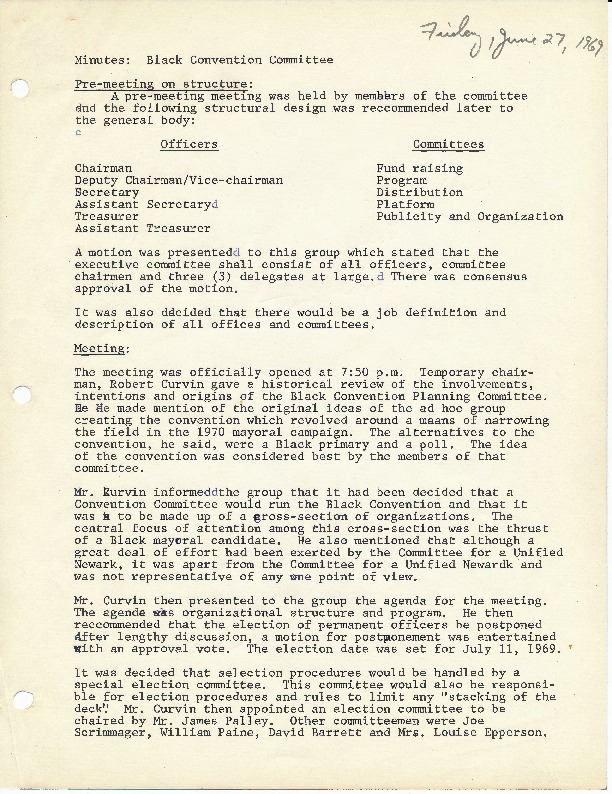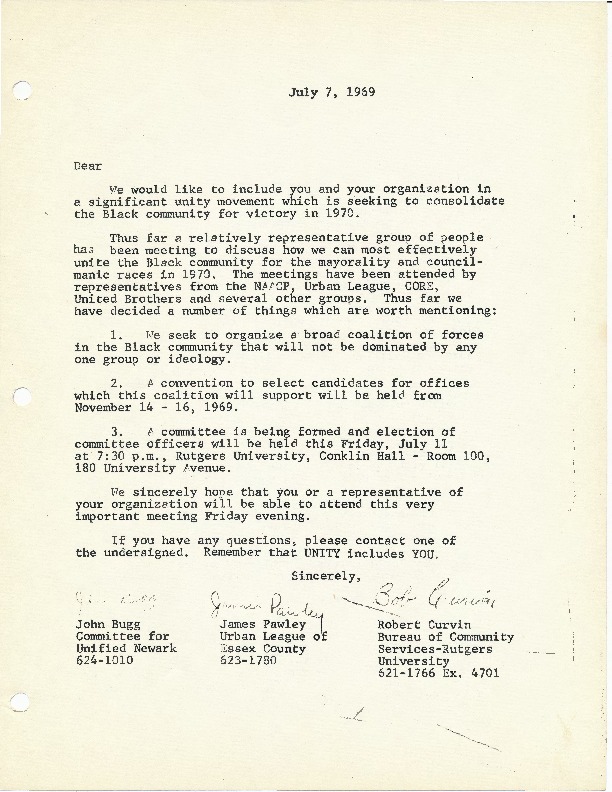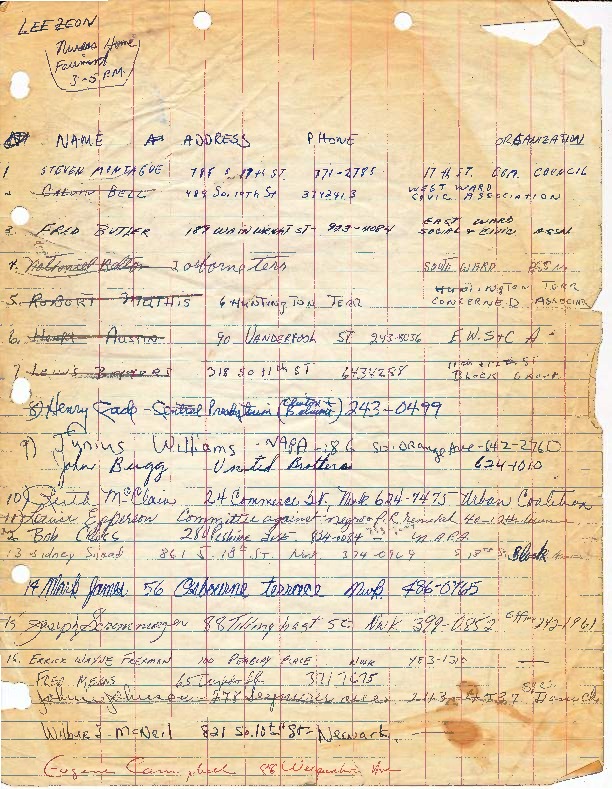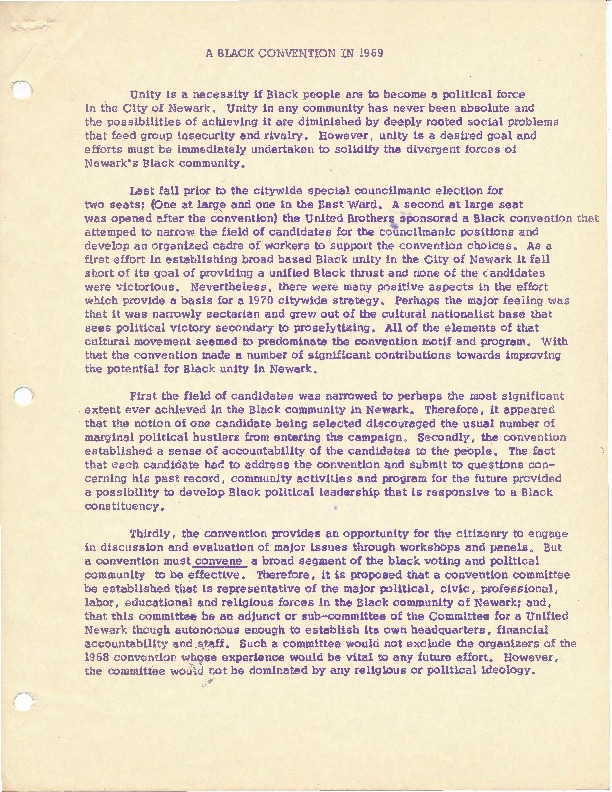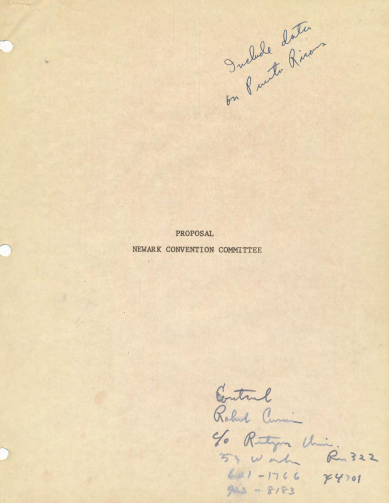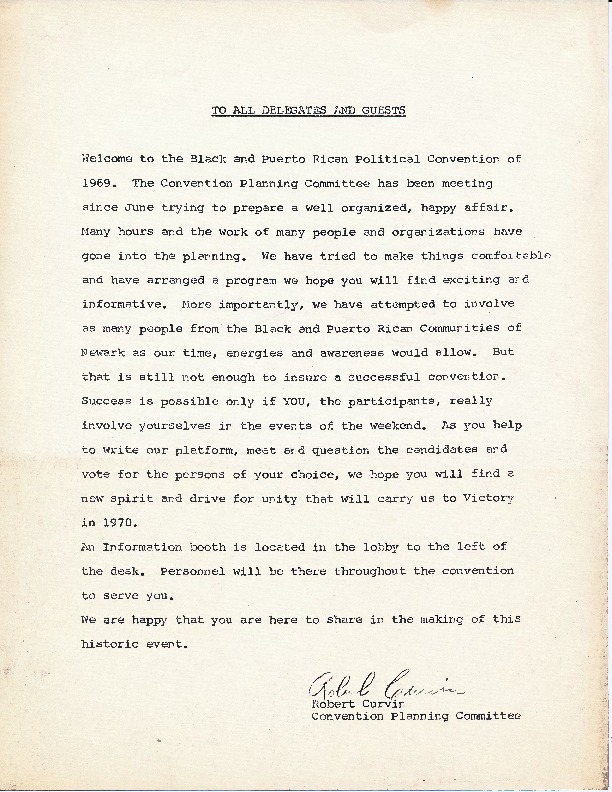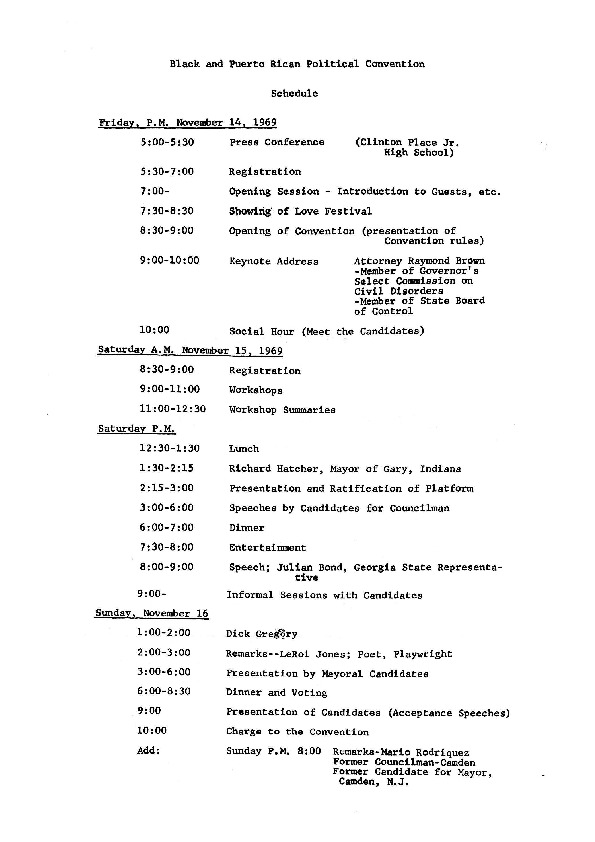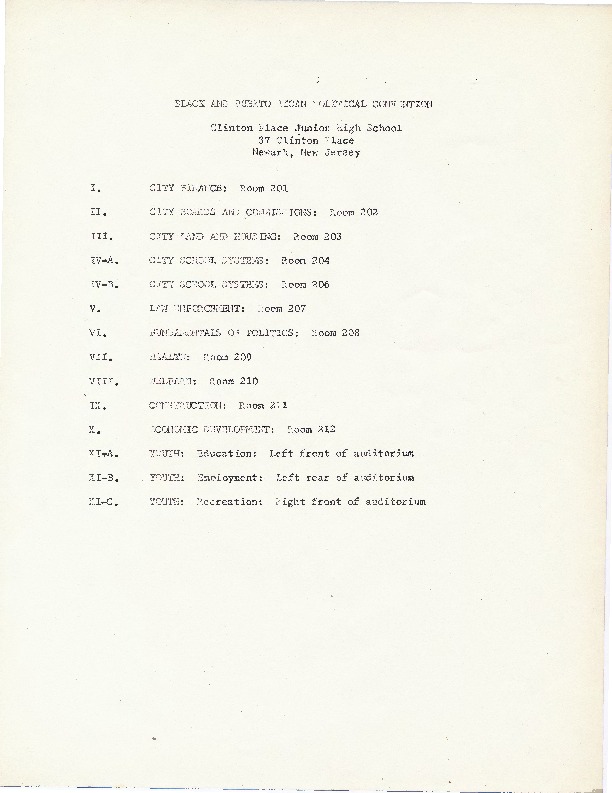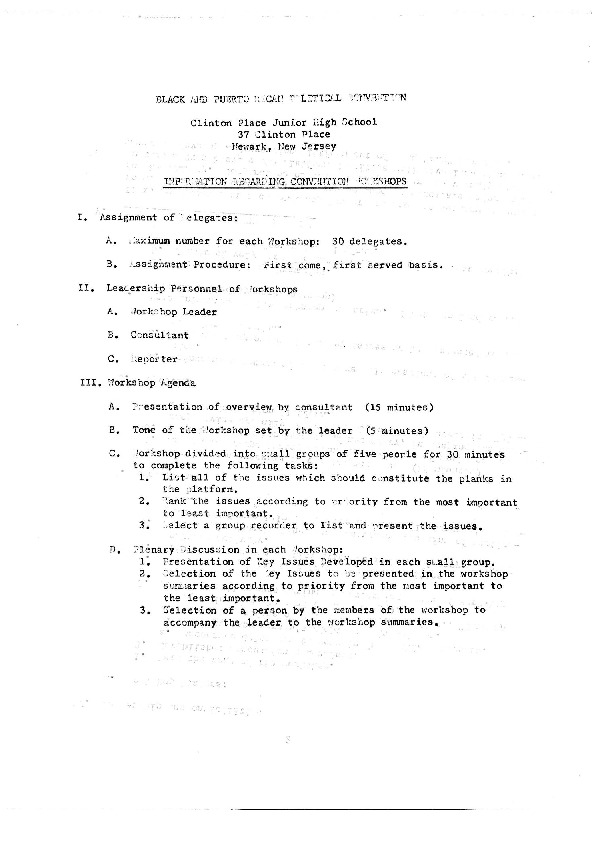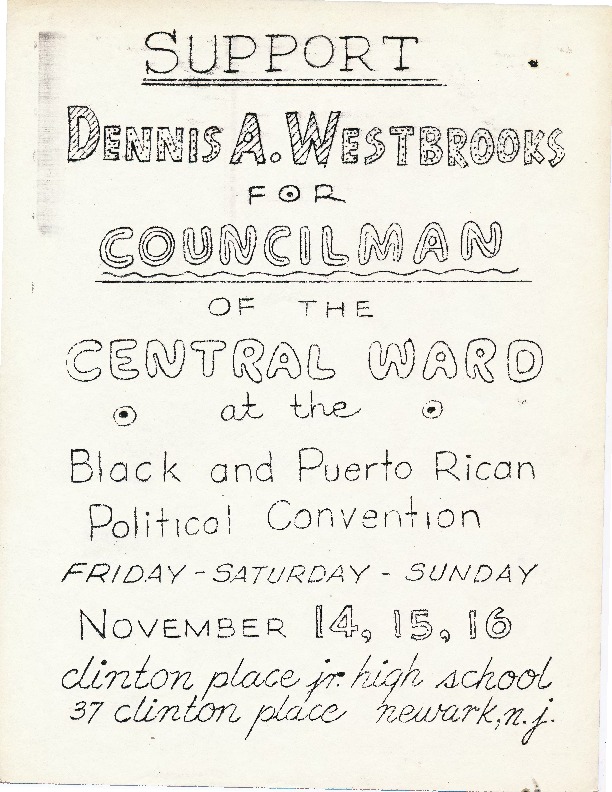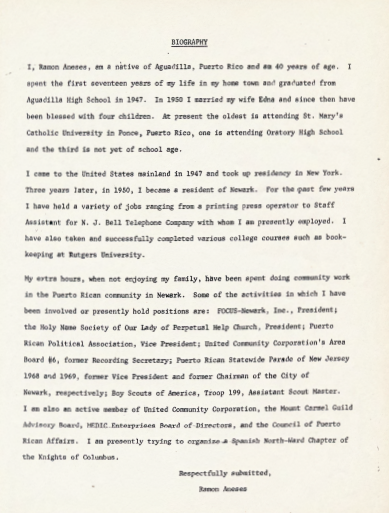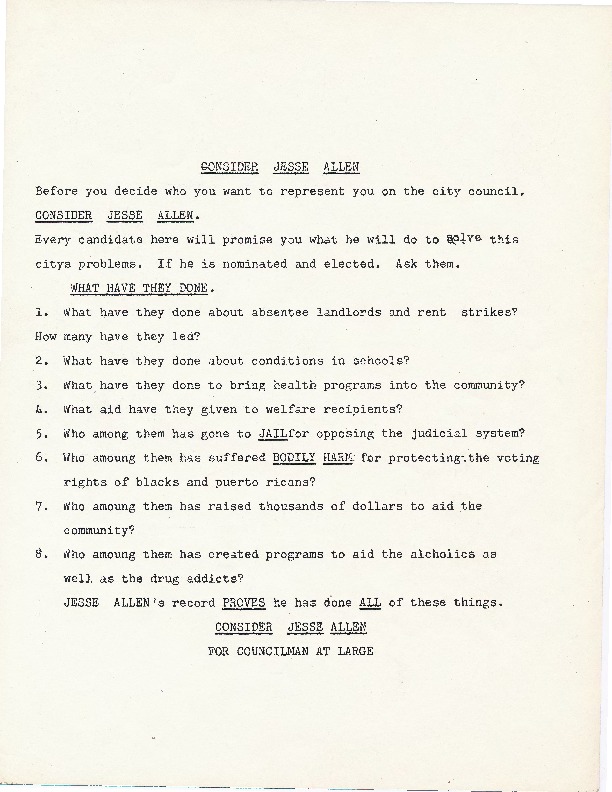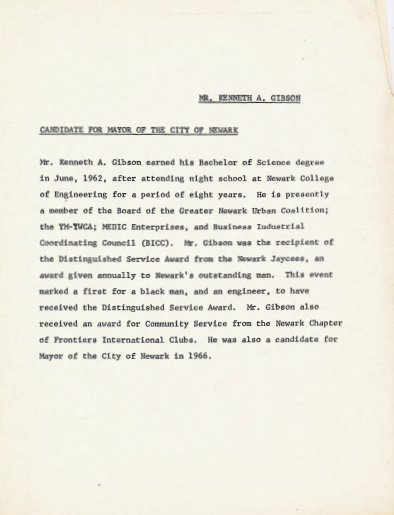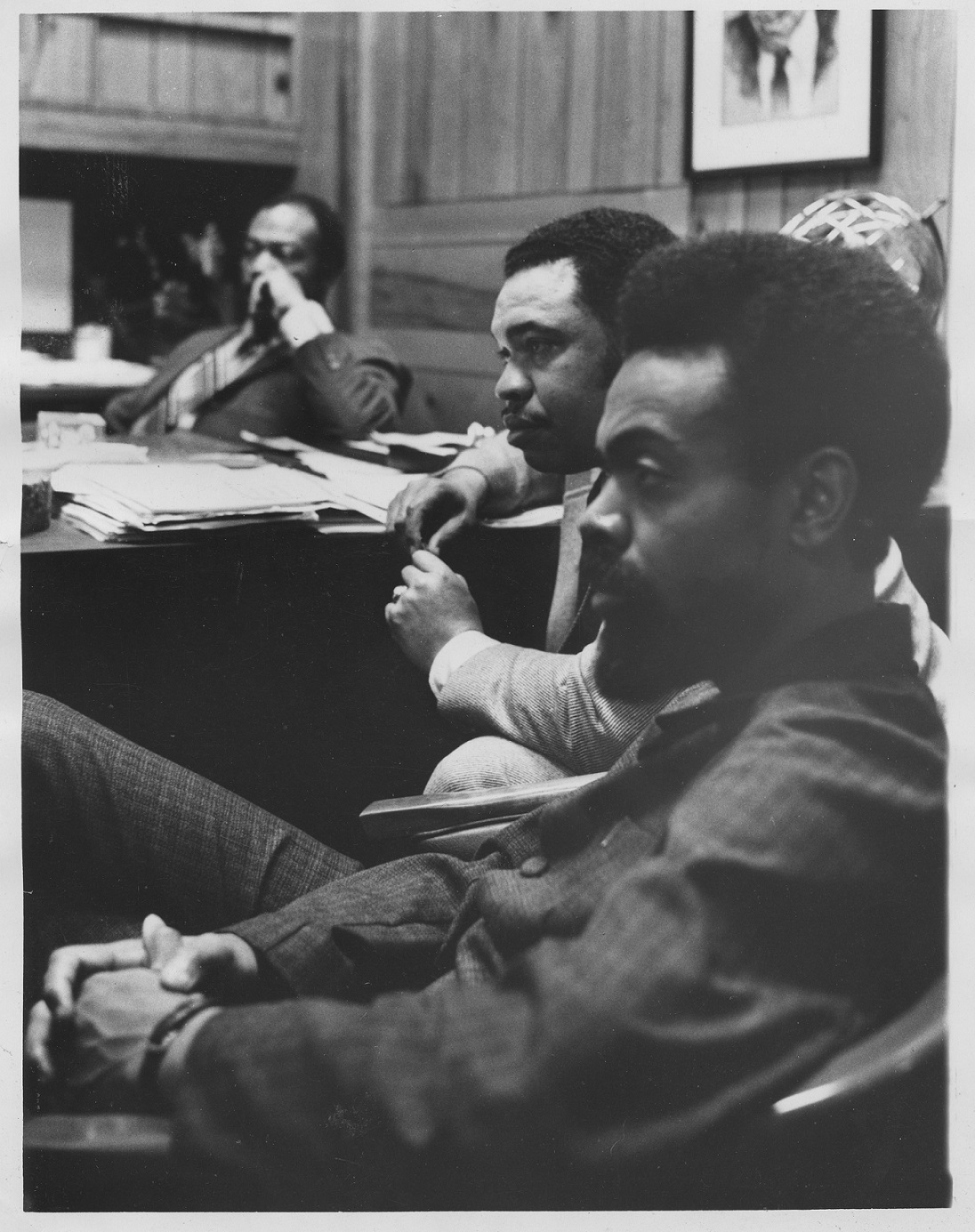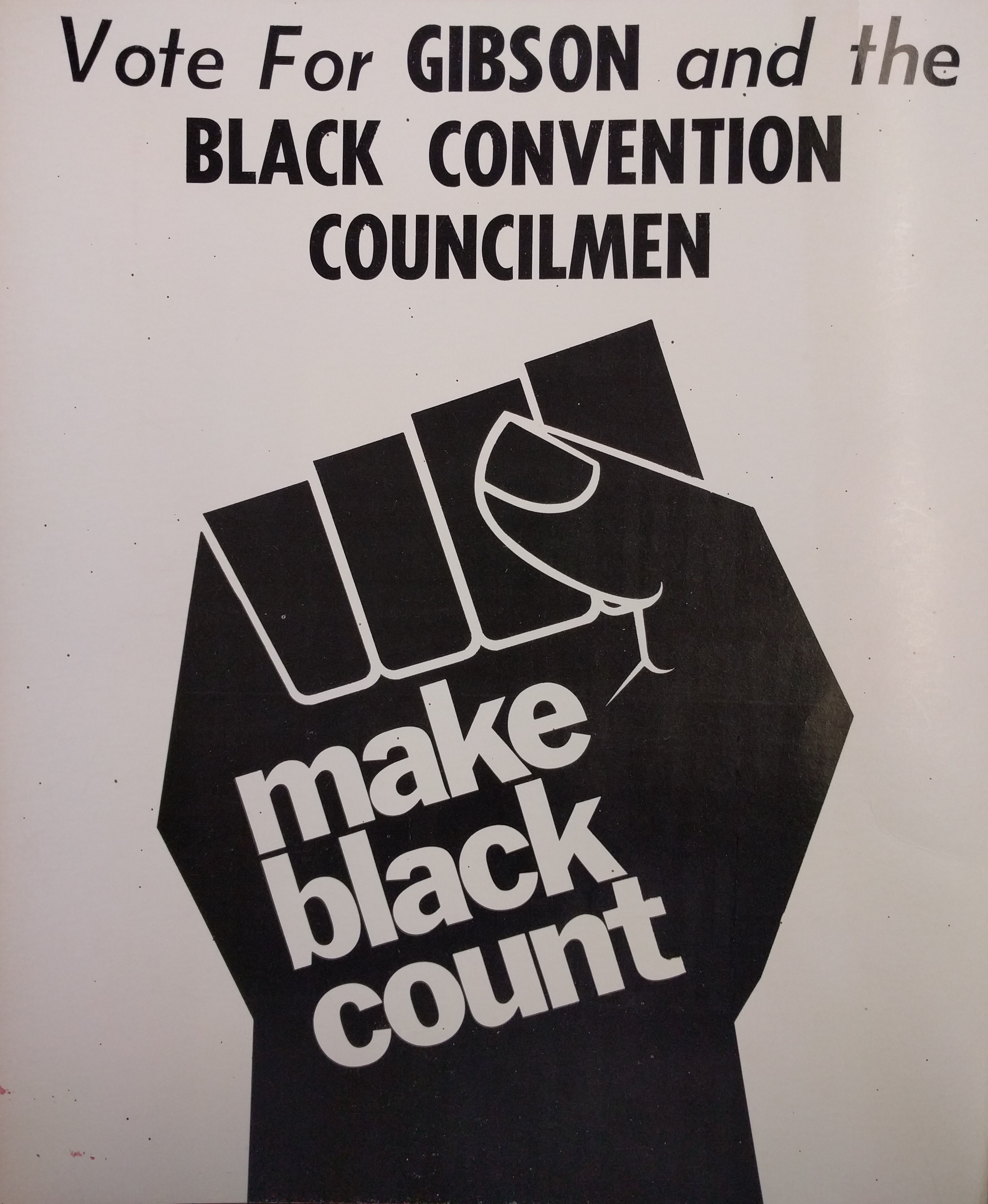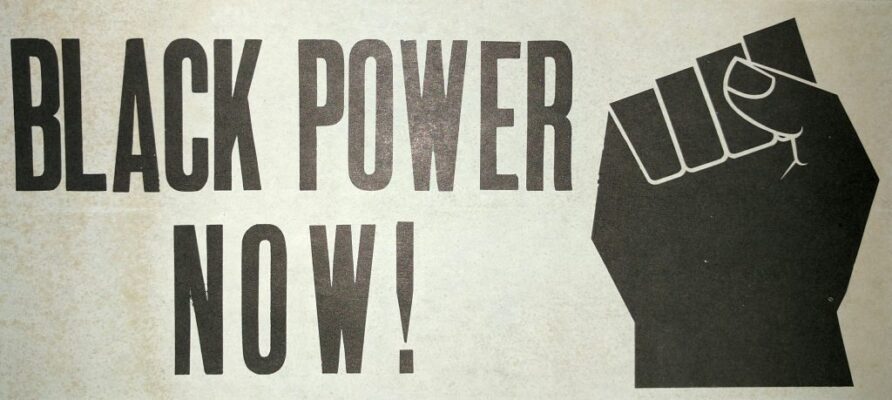The Black and Puerto Rican Convention
On November 14-16, 1969, the Committee for Unified Newark (CFUN) sponsored the Black and Puerto Rican Convention, which was designed to formally select the “Community’s Choice” for Mayor and City Council in the 1970 election. Of course like at most conventions, the choices had already been made before the public meetings, although there was an opportunity for people to be nominated “from the floor.” For the hundreds of people there, it was more of an opportunity to galvanize the community around candidates they knew, and to get on board with CFUN for the ultimate trip of our lifetime. There would be only one chance to elect the “first Black Mayor.”
This Convention was different than the one convened by the United Brothers in 1968, which was held to nominate candidates to fill vacancies on the City Council and was ultimately unsuccessful. In addition to the higher stakes of a mayoral election, the addition of the words “and Puerto Rican” to the name of the Convention showed the intentions of the organizers to build a broader political coalition. About 400-500 delegates attended the Convention, but the cultural nationalists were not as visible this time. CFUN leader Amiri Baraka had instead asked Bob Curvin and others to be in charge. Curvin said,
“While the first convention had been dominated by Baraka and the more separatist leaders of the Black community, the 1970 Convention was organized by a broad based committee headed by myself (Curvin) and leaders of the Urban League, …the National Council of Negro Women, a representative of a Black doctors organization, members of CFUN, and a number of Black and Puerto Rican leaders.”
While Curvin may be correct in the names of organizations that chaired the group, it would be inaccurate to call Baraka or CFUN “separatists.” However, it was in everyone’s interest that CFUN downplay the cultural nationalism, along with the rift that lay just under the surface amongst the various interest groups in this coalition.
Ken Gibson emerged as the “consensus candidate,” for mayor, along with the following candidates for the City Council: Sharpe James (South Ward); Dennis Westbrooks (Central Ward); Donald Tucker, Earl Harris, Ramon Aneses, and Ted Pinckney (Councilmen-at-Large). The main discussion of the Convention centered on the political platform, which all the candidates agreed to be bound by. The Convention came forth with some very interesting platform items:
- The cost of education and welfare should be completely taken over by state and federal government (more state money was ordered by the NJ Supreme Court as part of the “Abbott remedies” in Abbott vs. Burke some 24 years later)
- Revenue Sharing (federal funding mechanism) should give “extra consideration” to real estate tax overburdened cities like Newark
- Schools must teach Black and Puerto Rican history beginning at primary level. This history should be “written by Black and Puerto Rican writers, and approved by the community”
- The school district should be “divided into districts with duly elected governing Boards for each district.” (Community control of schools)
- More blacks and Puerto Ricans must be appointed on the police force, and police officers must live in the city
- Establishment of an effective Police Review Board “to investigate and hear community complaints concerning police activity”
- Teachers must live in or have background related to the community in which they are teaching (mandated in No Child Left behind, federal legislation, 30 years later)
- Schools need “An all day program for pre-kindergarten children” (Pre-school ordered in Abbott vs. Burke)
- “Free lunches for economically disadvantaged children” (Mandated by U.S. Government Title I program years later)
From the examples cited, it is evident that there was some real thinking and democracy going on in the workshops. “I remember seeing the passionate faces of the session leaders as we came forward at the last plenary session, to unite the convention around these demands upon which the candidates were duty-bound to accept,” Junius Williams recalls. “This platform and the hope that was intrinsic within, is what makes me excited every time I read the document. However, in the campaign to follow, very seldom did we hear evidence of commitment to these promises.”
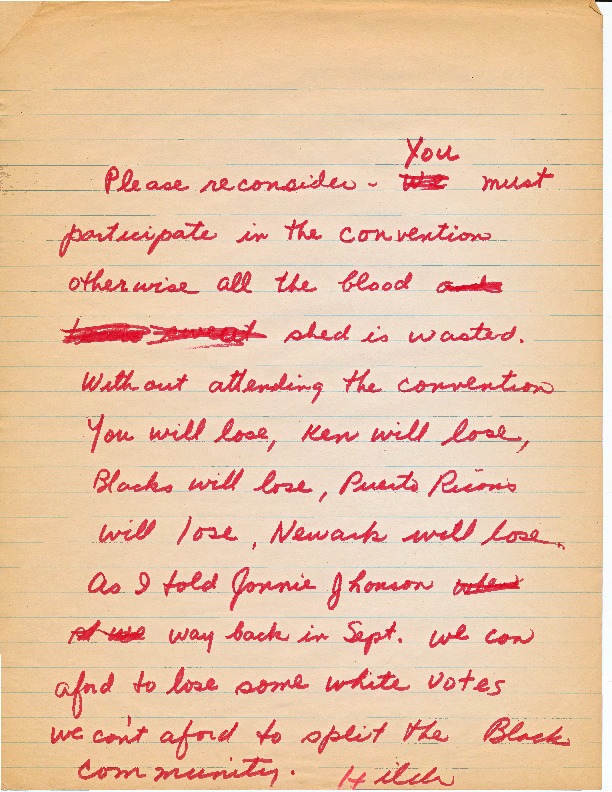
Handwritten letter from Puerto Rican community leader, Hilda Hidalgo, urging participation in the 1969 Black and Puerto Rican Convention. Hidalgo writes in the letter, “Without attending the convention, You will lose, Ken will lose, Blacks will lose, Puerto Ricans will lose, Newark will lose.” The Convention was organized to formally select the “Community’s Choice” for Mayor and City Council in the 1970 election. — Credit: Junius Williams Collection
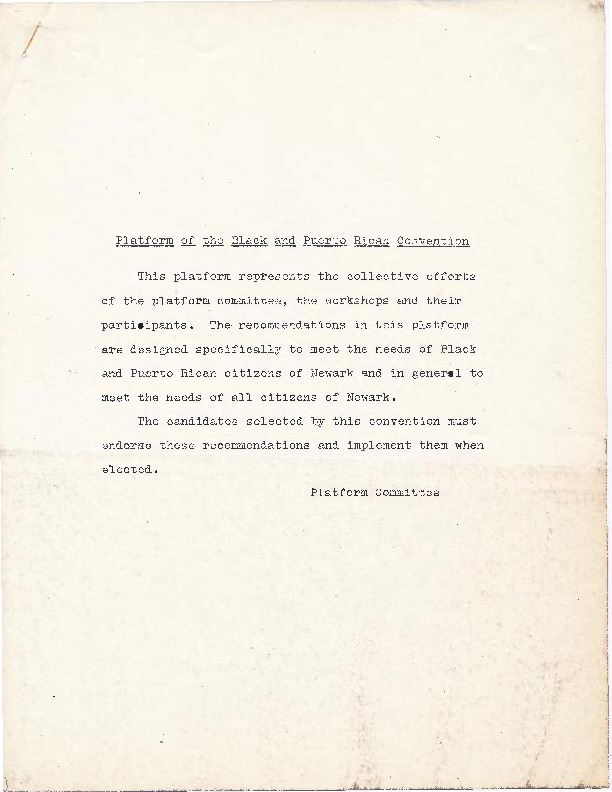
Official platform of the Black and Puerto Rican Convention, ratified on November 15, 1969, the second day of the Convention. The platform, developed through the Convention’s workshops, put forth a progressive political agenda for Newark’s 1970 Mayoral and City Council elections that all candidates nominated at the Convention agreed to be bound by. — Credit: Junius Williams Collection
Explore The Archives
